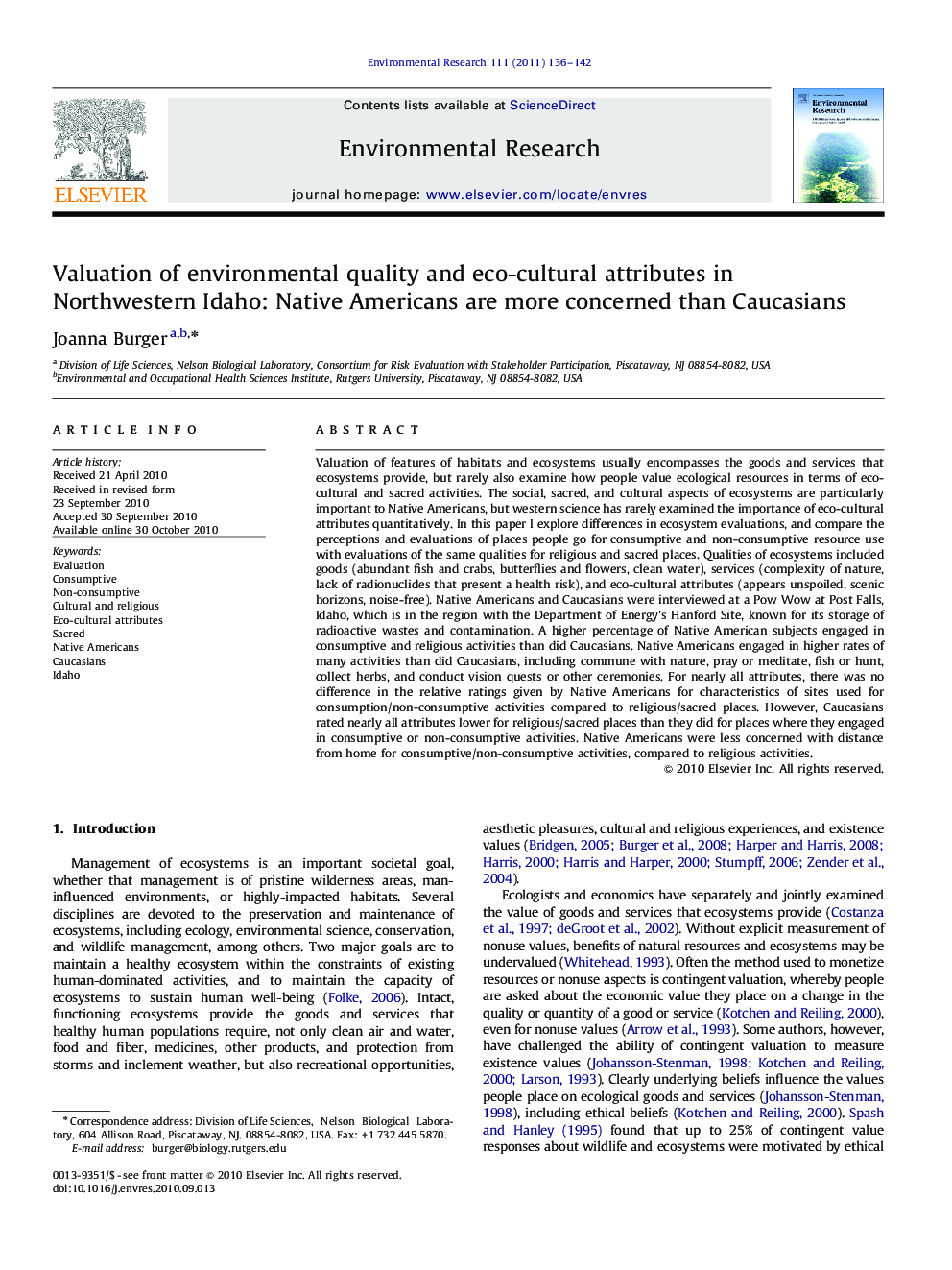| کد مقاله | کد نشریه | سال انتشار | مقاله انگلیسی | نسخه تمام متن |
|---|---|---|---|---|
| 4470019 | 1314383 | 2011 | 7 صفحه PDF | دانلود رایگان |

Valuation of features of habitats and ecosystems usually encompasses the goods and services that ecosystems provide, but rarely also examine how people value ecological resources in terms of eco-cultural and sacred activities. The social, sacred, and cultural aspects of ecosystems are particularly important to Native Americans, but western science has rarely examined the importance of eco-cultural attributes quantitatively. In this paper I explore differences in ecosystem evaluations, and compare the perceptions and evaluations of places people go for consumptive and non-consumptive resource use with evaluations of the same qualities for religious and sacred places. Qualities of ecosystems included goods (abundant fish and crabs, butterflies and flowers, clean water), services (complexity of nature, lack of radionuclides that present a health risk), and eco-cultural attributes (appears unspoiled, scenic horizons, noise-free). Native Americans and Caucasians were interviewed at a Pow Wow at Post Falls, Idaho, which is in the region with the Department of Energy’s Hanford Site, known for its storage of radioactive wastes and contamination. A higher percentage of Native American subjects engaged in consumptive and religious activities than did Caucasians. Native Americans engaged in higher rates of many activities than did Caucasians, including commune with nature, pray or meditate, fish or hunt, collect herbs, and conduct vision quests or other ceremonies. For nearly all attributes, there was no difference in the relative ratings given by Native Americans for characteristics of sites used for consumption/non-consumptive activities compared to religious/sacred places. However, Caucasians rated nearly all attributes lower for religious/sacred places than they did for places where they engaged in consumptive or non-consumptive activities. Native Americans were less concerned with distance from home for consumptive/non-consumptive activities, compared to religious activities.
Research Highlights
► A higher percentage of Native Americans engaged in consumptive and religious activities than did Caucasians interviewed.
► Caucasians rated environmental attributes as more important for consumptive and non-consumptive activities than they did for places where they engaged in religious/cultural ones.
► Native Americans rated environmental attributes as equally important regardless of the activities performed.
► Eco-cultural attributes (such as “appears unspoiled”) were rated as high as ecosystem services (e.g. unpolluted water).
Journal: Environmental Research - Volume 111, Issue 1, January 2011, Pages 136–142